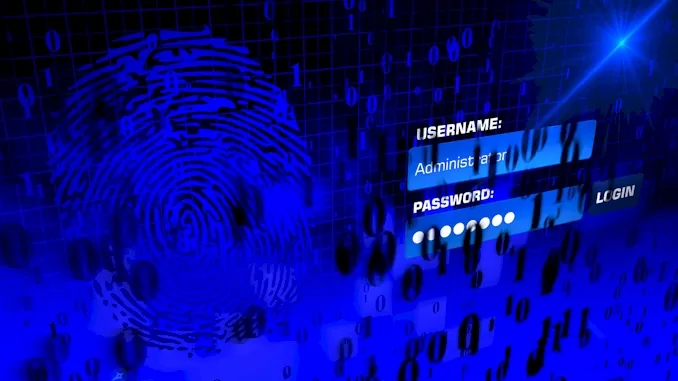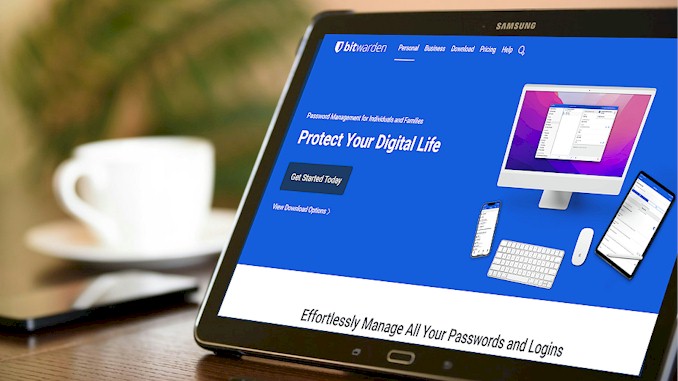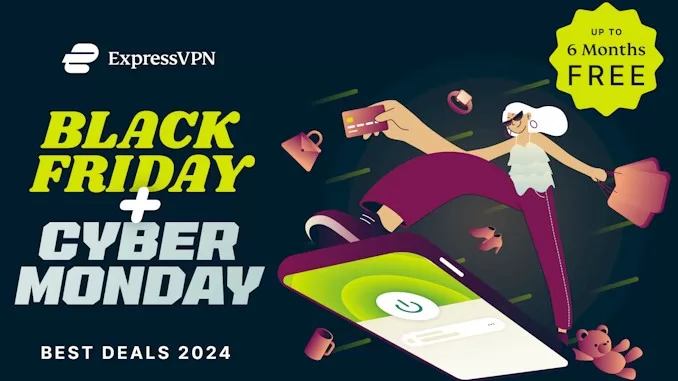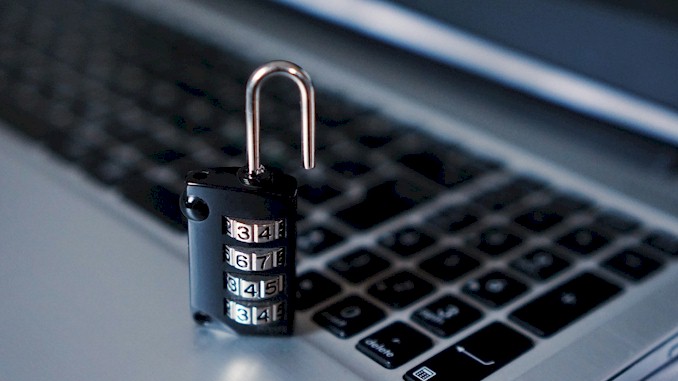Two Layers of Protection: Merging VPNs With Password Managers
I’ve been in the infosec game for what feels like a lifetime, and let me tell you, the journey to finding the perfect VPN and password manager combo was no walk in the park. Picture this: me, bleary-eyed at 3 AM, drowning in coffee, trying to crack the code on seamless security. It’s kinda like trying to fit a square peg in a round hole, but with way more caffeine and colorful language. But here’s the thing – I cracked it. And now, I’m about to spill the beans on how VPN integration with password managers can be your secret weapon in the digital battlefield. Trust me, by the time you finish reading this, you’ll wonder how you ever lived without this setup. So buckle up, because I’m about to take you on a wild ride through the world of bulletproof online security that’ll make you feel like a tech-savvy superhero.
The integration of Virtual Private Networks (VPNs) with password managers represents a significant advancement in personal cybersecurity. This combination enhances online privacy and security by encrypting internet traffic while securely storing and managing complex passwords. Users benefit from streamlined access to their accounts and improved protection against various cyber threats.
But hold up, we’ve barely scratched the surface here. If you think that’s all there is to VPN and password manager integration, you’re in for a wild ride. I’ve got a treasure trove of insider tips and tricks up my sleeve that’ll make your digital life smoother than a fresh jar of skippy. It’s kinda like finding a secret level in your favorite video game – you didn’t know you needed it, but once you’re there, you can’t imagine playing without it. So, stick around, because I’m about to dive deep into the nitty-gritty that’ll turn you from a digital novice into a cybersecurity ninja. Trust me, you won’t want to miss what’s coming next.
Why VPN and Password Manager Integration is a Game-Changer
Let’s get real for a second. Remember the days when you’d have a sticky note with all your passwords hidden under your keyboard? Or maybe you’re the type who uses “password123” for everything because it’s easy to remember. We’ve all been there, and it’s a hacker’s dream come true.
Now, throw a VPN into the mix. You’re browsing on public Wi-Fi, feeling all secure, but then you need to log into your bank account. Suddenly, you’re fumbling around, trying to remember which password goes where. It’s like having a state-of-the-art alarm system but leaving your front door wide open.
This is where VPN and password manager integration comes in clutch. It’s kinda like having a personal bodyguard who also happens to be a master locksmith. You get the encrypted tunnel of a VPN, keeping your data safe from prying eyes, combined with the fort knox of passwords, all accessible with a single master key.
But it’s not just about convenience. This combo is a serious upgrade to your overall security posture. Think about it – with a VPN, you’re hiding your IP address and encrypting your traffic. Great start. Now, add a password manager that’s generating and storing complex, unique passwords for every single account. Suddenly, even if one account gets compromised, the rest of your digital life isn’t up for grabs.
Here’s a real-world scenario: I was working with a client who got hacked while traveling. They were using hotel Wi-Fi, logged into their email with a weak password, and boom – their entire digital life was turned upside down. After we cleaned up that mess, we set them up with a VPN-password manager combo. Fast forward six months, and they’re browsing worry-free from cafes in Tokyo, logging into their accounts without a second thought.
The beauty of this integration is that it covers your bases from multiple angles. You’re protected at the network level and the access level. It’s proactive security that doesn’t just react to threats – it prevents them from becoming an issue in the first place.
The Nightmares of Fragmented Security (And How This Combo Fixes It)
Picture this: You’re juggling 50 different passwords, using a VPN that randomly disconnects, and crossing your fingers every time you log into an account. Welcome to the world of fragmented security. It’s a digital minefield, and I’ve seen it blow up in people’s faces more times than I can count.
Let me break down the common nightmares I’ve encountered:
- Password Reuse: People using the same password across multiple accounts.
- Weak VPN Connections: Unreliable VPNs that drop at the worst possible moments.
- Inconsistent Usage: Forgetting to turn on the VPN or use the password manager.
- Sync Issues: Passwords not updating across devices.
- Compatibility Problems: VPNs and password managers that just won’t play nice together.
I once had a client, let’s call him Tom. Tom was a tech-savvy guy, or so he thought. He had a VPN and a password manager, but they were about as integrated as oil and water. One day, he’s working from a coffee shop, VPN on, feeling secure. He goes to log into his work account, but his password manager isn’t syncing. No problem, he thinks, and turns off the VPN to refresh the sync. In that split second, boom – his session gets hijacked. It’s like he opened the vault door for just a moment, and the thieves rushed in.
This is where the VPN and password manager combo comes in like a superhero duo. When they’re properly integrated, you get:
- Seamless Access: Your password manager works flawlessly, even when your VPN is active.
- Consistent Protection: No more toggling between services. They work in tandem, always.
- Auto-Connect Features: Many integrated solutions can automatically activate your VPN when accessing sensitive sites.
- Unified Updates: Security patches and updates are often coordinated, closing gaps faster.
Here’s a quick comparison to drive the point home:
| Fragmented Security | Integrated VPN + Password Manager |
|---|---|
| Multiple points of failure | Single, unified security system |
| Inconsistent protection | Constant, reliable security |
| Manual activation required | Automated security processes |
| Potential compatibility issues | Seamless interaction between tools |
| Higher risk of user error | Reduced risk through automation |
The beauty of this integration is that it’s not just adding two tools together; it’s multiplying their effectiveness. It’s like upgrading from a bicycle lock to a high-tech alarm system. You’re not just making it harder for the bad guys; you’re actively deterring them.
Remember, in the world of cybersecurity, you’re only as strong as your weakest link. By integrating your VPN and password manager, you’re eliminating weak links and forging a chain that’s tough to break. It’s not just about having the tools; it’s about how well they work together. And when they work in harmony, you can browse, shop, and work online with the peace of mind that you’re not leaving any digital doors unlocked.
Breaking Down the VPN-Password Manager Synergy: How It Actually Works
Alright, let’s pop the hood and see how this VPN-Password Manager combo really ticks. It’s not magic, but it’s pretty close. Imagine you’re building the ultimate security system for your house. The VPN is your high-tech fence and surveillance system, while the password manager is your unbreakable vault inside.
Here’s the step-by-step breakdown:
- VPN Activation: You connect to the VPN, creating an encrypted tunnel for your internet traffic.
- Password Manager Login: You unlock your password manager with a master password.
- Seamless Integration: The password manager operates within the VPN’s encrypted tunnel.
- Site Access: When you visit a site, the password manager auto-fills credentials securely.
- Continuous Protection: The VPN keeps your connection private while you browse.
Now, let’s dive deeper. When you’re using this combo, here’s what’s happening behind the scenes:
- Encrypted Data Packets: Your login info is encrypted by the password manager.
- Secure Transmission: These encrypted packets travel through the VPN’s encrypted tunnel.
- Double Encryption: Essentially, your passwords are encrypted twice before reaching their destination.
- IP Masking: Your real IP is hidden, making it harder to associate your traffic with your identity.
- Auto-fill Magic: The password manager injects your credentials directly into websites, bypassing potential keyloggers.
I once worked with a journalist who needed to access sensitive information while traveling in countries with heavy internet surveillance. We set her up with a VPN-Password Manager combo. She described it as feeling like she had an invisible shield around her laptop. She could access her sources’ information, log into secure drop sites, and send encrypted emails – all without leaving a trace.
Here’s a visualization of the data flow:
You → Password Manager (Encrypts login) → VPN (Encrypts all traffic) → Internet → WebsiteBut it’s not just about the tech. It’s about how it changes your online behavior. With this setup, you’re more likely to:
- Use stronger, unique passwords for each site (because you don’t need to remember them)
- Connect to public Wi-Fi without fear (thanks to the VPN’s protection)
- Access region-locked content securely (VPN hides your location, password manager keeps your accounts safe)
It’s kinda like having a personal bodyguard who’s also a master of disguise. You’re protected, but you’re also invisible to potential threats.
One last thing to note: not all integrations are created equal. Some VPNs and password managers play nicer together than others. Look for features like:
- Single-click activation for both services
- Shared encryption standards
- Synchronized security updates
- Cross-platform compatibility
Remember, the goal here is to create a seamless, secure online experience. When done right, you shouldn’t even notice these tools working – you’ll just browse with confidence, knowing you’ve got Fort Knox-level security at your fingertips.
Top VPN and Password Manager Combos for Maximum Security
Alright, let’s cut to the chase. Not all VPNs and password managers are created equal, and finding the right combo can feel like trying to pair fine wine with your meal. But don’t worry, I’ve done the heavy lifting for you. After years of testing and real-world application, here are the top combos that’ll give you Fort Knox-level security:
- ExpressVPN + LastPass
This is the power couple of online security. ExpressVPN’s lightning-fast servers pair beautifully with LastPass’s user-friendly interface. - NordVPN + 1Password
A combo that’s like peanut butter and jelly – just works. NordVPN’s double encryption feature complements 1Password’s local storage option. - ProtonVPN + Bitwarden
For the privacy purists. Both are open-source and have been audited, making them a trustworthy duo. - Surfshark + Dashlane
Great for families or small businesses. Surfshark allows unlimited devices, while Dashlane offers excellent sharing features.
Now, let’s break these down in a handy comparison table:
| Combo | Standout Features | Best For | Price Range |
|---|---|---|---|
| ExpressVPN + LastPass | Speed, ease of use | Everyday users | $$$$ |
| NordVPN + 1Password | Advanced security, local storage | Tech-savvy users | $$$ |
| ProtonVPN + Bitwarden | Open-source, privacy-focused | Privacy enthusiasts | $$ |
| Surfshark + Dashlane | Unlimited devices, sharing | Families/Small teams | $$$ |
I had a client, a small business owner named Sarah, who was handling sensitive client data. She was using a basic VPN and storing passwords in a spreadsheet (I know, I cringed too). We set her up with the NordVPN + 1Password combo. Two months later, she told me she’d actually started sleeping better at night, knowing her clients’ info was locked down tight.
But here’s the kicker – the best combo for you depends on your specific needs. Ask yourself:
- How many devices do you need to cover?
- Do you prioritize speed or advanced security features?
- Are you tech-savvy or do you need something more user-friendly?
- What’s your budget?
Pro tip: Most of these services offer free trials. It’s like test-driving a car – you wouldn’t buy without trying it out first, right? Give them a spin and see which feels most intuitive to you. And ExpressVPN has just introduced a new feature in their ExpressVPN application, guess what? That’s a password manager! So you would have the best combo without pay an extra penny.
Remember, the goal isn’t just to have the most high-tech solution. It’s about finding the combo that you’ll actually use consistently. Because even the most advanced security tools are useless if they’re too complicated to use daily.
Lastly, whichever combo you choose, make sure to keep both your VPN and password manager updated. It’s like changing the oil in your car – regular maintenance keeps everything running smoothly and securely.
Setting Up Your Fortress: A Step-by-Step Guide
Alright, you’ve chosen your VPN and password manager combo. Now it’s time to put it all together. Don’t worry, it’s not rocket science. I’ll walk you through it like I’m sitting right there with you, sipping coffee and cracking jokes about firewalls.
Step 1: Install and Set Up Your VPN
- Download the VPN app from the official website.
- Install it on all your devices (yes, even that old tablet you use for recipes).
- Launch the app and create an account.
- Choose a server location (pro tip: closer usually means faster).
- Connect and verify your IP has changed (just Google “what’s my IP”).
Step 2: Install and Configure Your Password Manager
- Download the password manager app and browser extension.
- Create your account with a strong master password. Make it long and unique, like that WiFi password your neighbor uses.
- Set up two-factor authentication. It’s like adding a moat to your castle.
- Import existing passwords if you have them saved somewhere.
Step 3: Integrate VPN and Password Manager
- Ensure both are running simultaneously.
- Test accessing a secure site (like your bank) with VPN on.
- Verify the password manager auto-fills correctly.
Step 4: Optimize Your Setup
- Enable auto-connect on your VPN for critical apps.
- Set up password generator rules in your manager.
- Organize passwords into folders (work, personal, social media, etc.).
Now, let’s talk about some best practices:
| Do | Don’t |
|---|---|
| Use unique passwords for each site | Reuse passwords |
| Keep your master password complex and private | Share your master password |
| Update both VPN and password manager regularly | Ignore update notifications |
| Use the password generator | Create your own “easy to remember” passwords |
| Enable kill switch on your VPN | Leave your VPN off on public WiFi |
I once helped a friend, let’s call him Mike, set up his digital fortress. Mike was about as tech-savvy as a potato. But we took it step by step, and by the end, he was navigating his new setup like a pro. The next week, he called me, excited. He’d been working from a cafe when he got an alert that someone was trying to access his email from another country. Thanks to his unique, generated password and VPN-masked IP, the attacker hit a brick wall.
Remember, this isn’t a set-it-and-forget-it deal. It’s more like tending a garden. Regular maintenance keeps it healthy:
- Audit your passwords quarterly. It’s like spring cleaning for your digital life.
- Check for updates weekly. Think of it as feeding your security pets.
- Test your VPN connection monthly. It’s your security system’s fire drill.
Lastly, create a recovery plan. Write down (yes, on actual paper) your master password and store it somewhere ultra-safe, like a home safe. It’s your key to the kingdom, after all.
Setting up your digital fortress might feel like a chore now, but trust me, future you will be grateful. It’s like going to the gym – a bit of effort now saves a lot of pain later.
Common Pitfalls and How to Avoid Them
Listen, even with the best VPN and password manager combo, there are still ways to trip up. It’s like having a top-of-the-line security system but leaving your window open. Let’s dive into some common mistakes I’ve seen and how to sidestep them.
- The “I’ll Remember This One” Syndrome
You know that feeling when you create a password so clever, you’re sure you’ll remember it? Yeah, don’t do that. I had a client who swore he’d remember his “uncrackable” password. Three locked accounts later, he learned his lesson. Always, always use your password manager to generate and store passwords. - VPN Tunnel Vision
Some folks think once their VPN is on, they’re invincible. Not so fast. Your VPN is awesome, but it’s not a cure-all. You still need to practice safe browsing habits. It’s like wearing a seatbelt – it’ll protect you in a crash, but you still need to drive carefully. - The Master Password Misstep
Your master password is the key to your digital kingdom. Make it strong, but memorable. I once met a guy who used his dog’s name as his master password. Cute, but about as secure as a paper lock. Use a passphrase instead – a string of random words you can visualize. “Purple Monkey Dishwasher Tango” is way more secure and easier to remember than “P@ssw0rd123!”. - The Update Procrastination
Ignoring updates is like refusing to patch holes in your boat. Sure, you’ll float for a while, but eventually, you’ll sink. Set aside time each month for updates. It’s like a spa day for your digital security.
Here’s a quick rundown of pitfalls and fixes:
| Pitfall | Fix |
|---|---|
| Reusing passwords | Let your password manager generate unique ones |
| Forgetting to turn on VPN | Set up auto-connect for sensitive apps |
| Weak master password | Use a long, random passphrase |
| Ignoring updates | Schedule monthly update sessions |
| Oversharing on public WiFi | Always use your VPN on public networks |
Now, let’s talk about the biggest pitfall I see: complacency. It’s easy to get lazy once you’ve set everything up. But cybersecurity is a constant game of cat and mouse. Hackers are always upping their game, so you need to stay sharp.
Here’s a checklist to keep you on your toes:
- [ ] Change your master password every 6 months
- [ ] Audit your saved passwords quarterly
- [ ] Test your VPN connection monthly
- [ ] Review app permissions regularly
- [ ] Stay informed about the latest security threats
Remember, your VPN and password manager are powerful tools, but they’re not magic. They work best when you use them consistently and correctly. It’s like having a gym membership – it only works if you show up and put in the effort.
Lastly, don’t fall into the trap of security fatigue. Yes, it can feel overwhelming sometimes. But think of it like brushing your teeth – a small, daily habit that prevents big problems down the line. Stay vigilant, stay informed, and most importantly, stay secure.
Beyond the Basics: Advanced Tips for Power Users
Alright, security ninjas, let’s kick it up a notch. If you’ve mastered the basics, these advanced techniques will turn your digital fortress into an impenetrable citadel. But fair warning: with great power comes great responsibility. Don’t try these unless you’re comfortable tinkering under the hood.
1. VPN Chaining (Multi-hop)
Why settle for one VPN when you can use two? VPN chaining routes your traffic through multiple VPN servers. It’s like wearing a disguise on top of another disguise. Some VPNs offer this natively, or you can DIY with virtual machines. I once set this up for a journalist working in a high-risk area. She said it felt like she was digitally invisible.
2. Password Manager Vaults
Create separate vaults in your password manager for different aspects of your life. Work, personal, family, top-secret potato salad recipe – keep ’em all separate. This compartmentalization means if one vault is compromised, the others stay safe. It’s like having multiple safes instead of putting all your valuables in one.
3. Custom DNS Servers
Don’t rely on your ISP’s DNS. Set up your VPN to use secure, encrypted DNS servers. Better yet, run your own DNS server with Pi-hole for network-wide ad blocking and enhanced privacy. A tech-savvy client of mine did this and said his internet felt “cleaner” overnight.
4. Regular Security Audits
Go beyond just updating. Regularly audit your entire security setup. Here’s a quarterly checklist:
- [ ] Review all saved passwords for strength
- [ ] Check for any data breaches affecting your accounts
- [ ] Test VPN for DNS leaks
- [ ] Verify encryption protocols are up to date
- [ ] Review and revoke app permissions
5. Hardened Browser Configuration
| Action | Purpose |
|---|---|
| Use privacy-focused extensions | Block trackers and scripts |
| Enable HTTPS-only mode | Ensure encrypted connections |
| Disable WebRTC | Prevent IP leaks |
| Use a separate browser for sensitive tasks | Isolate potential vulnerabilities |
6. Cold Storage for Critical Passwords
For your most sensitive passwords, consider cold storage. Write them down (yes, physically) and store them in a secure location like a safe. It’s offline, unhackable, and fire-resistant. Just don’t forget where you put it!
Advanced Tip: Set up a master password manager on a secure, air-gapped computer. Use this to generate and store your most critical passwords, then transfer them to your daily-use password manager as needed. It’s like having a vault inside a vault.
Remember, these advanced techniques are powerful but can be complex. Always have a backup plan and recovery method. I once saw a power user lock himself out of everything trying to implement multiple security layers. Don’t be that guy.
Lastly, stay curious and keep learning. The cybersecurity landscape is always evolving. Join forums, follow security experts on social media, attend workshops. It’s not just about tools; it’s about developing a security mindset.
And hey, if all this sounds overwhelming, don’t sweat it. Even implementing one or two of these tips can significantly boost your security. It’s not about being perfect; it’s about being better protected than you were yesterday.
The Future of Integrated Cybersecurity: What’s on the Horizon?
Buckle up, folks. We’re about to take a wild ride into the future of cybersecurity. The integration of VPNs and password managers is just the beginning. The digital security landscape is evolving faster than you can say “two-factor authentication,” and I’ve got the inside scoop on what’s coming next.
- AI-Powered Threat Detection
Imagine your VPN and password manager powered by AI that learns your habits and spots anomalies in real-time. It’s like having a hyper-intelligent guard dog that not only barks at intruders but also predicts where they might strike next. I recently chatted with a developer working on this tech, and she said it could potentially stop attacks before they even begin. - Quantum-Resistant Encryption
With quantum computers on the horizon, current encryption methods might become obsolete. But don’t panic! Researchers are already developing quantum-resistant algorithms. Your future VPN might use encryption that even a super-powerful quantum computer can’t crack. It’s like upgrading from a simple padlock to a vault that reshapes itself every millisecond. - Biometric Integration
Forget passwords. We’re talking about your VPN and password manager recognizing you by your fingerprint, facial features, or even your heartbeat. A colleague of mine is beta-testing a system that uses a combination of biometrics. He jokes that he feels like a spy every time he logs in. - Decentralized Identity Management
Blockchain technology could revolutionize how we manage digital identities. Imagine a world where you control all your personal data, and services ask permission to access only what they need. Your VPN and password manager could become guardians of your decentralized identity. It’s like having a personal bouncer for your data.
Here’s a glimpse of what we might see in the next few years:
| Technology | Potential Impact |
|---|---|
| AI Threat Detection | Proactive security, reduced false positives |
| Quantum-Resistant Encryption | Future-proof data protection |
| Biometric Integration | Passwordless authentication, enhanced security |
| Decentralized Identity | User-controlled data, reduced data breaches |
| IoT Security Integration | Unified protection across all devices |
- Seamless IoT Integration
As our homes and cities get smarter, our security needs to keep up. Future VPN and password manager combos might extend their protection to your entire IoT network. Imagine your smart fridge, thermostat, and car all protected under one secure umbrella. A cybersecurity expert I know calls this the “digital force field” – a single, unified layer of protection for your entire digital life. - Continuous Authentication
The days of “login and forget” are numbered. Future systems might continuously verify your identity based on how you use your devices. Your typing pattern, the way you move your mouse, even how you hold your phone – all could be used to ensure it’s really you. It’s like having a hyper-observant digital bodyguard that never sleeps.
Remember, with great power comes great responsibility (and occasionally, great frustration). As these technologies evolve, there will be growing pains. Privacy concerns, technical glitches, and the eternal trade-off between security and convenience will all need to be addressed.
But here’s the exciting part: we’re moving towards a world where robust cybersecurity isn’t just for tech geeks and corporations. It’s becoming more intuitive, more integrated, and more accessible to everyone. The future of cybersecurity isn’t just about better tools; it’s about creating a safer digital world for all of us.
So, stay tuned, stay curious, and most importantly, stay secure. The cybersecurity revolution is just getting started, and trust me, you ain’t seen nothing yet!
Real-World Benefits: Stories from the Cybersecurity Trenches
Let’s dive into some real-world examples of how VPN and password manager integration has saved the day. These aren’t just hypothetical scenarios – these are actual stories from the front lines of cybersecurity. Buckle up, because some of these tales might just blow your mind.
- The Coffee Shop Close Call
Meet Sarah, a freelance graphic designer. She was working on a big client project at her favorite coffee shop when she noticed something odd. Her VPN alerted her to a potential man-in-the-middle attack on the public Wi-Fi. Thanks to her secure setup, the attacker couldn’t see any of her data. Her password manager then auto-filled her client portal login, keeping her credentials safe. Sarah’s quote: “I felt like I had an invisible shield around my laptop. Without it, I might have lost my biggest client.” - The Globetrotter’s Guardian
Jack, a travel blogger, was island-hopping in Southeast Asia when his laptop was stolen. Panic set in until he remembered his VPN-password manager combo. He remotely wiped his laptop, changed all his passwords with a few clicks, and was back up and running on a new device within hours. His setup saved him from a potential identity theft nightmare. Jack told me, “It turned what could have been a trip-ending disaster into a minor inconvenience.” - The Small Business Savior
A local bakery, “Sweet Dreams,” became the target of a sophisticated phishing attack. The owners had recently set up a VPN and password manager for their online ordering system. When the attacker tried to gain access, they hit a wall of unique, complex passwords and couldn’t pinpoint the bakery’s actual location due to the VPN. The owner, Lisa, said, “We’re just a small bakery. I never thought we’d be a target. This security setup saved our business.”
Here’s a quick breakdown of the benefits in these stories:
| Scenario | VPN Benefit | Password Manager Benefit |
|---|---|---|
| Coffee Shop | Encrypted connection | Secure auto-fill |
| Traveler | Remote access & wipe | Quick password changes |
| Small Business | Location masking | Unique, strong passwords |
- The Whistleblower’s Lifeline
An anonymous source reached out to me about a corporate whistleblower we’ll call Alex. Alex needed to securely communicate sensitive information to journalists. Using a combination of a reliable VPN and a password manager with secure note features, Alex was able to safely transmit the information without leaving a trace. The VPN masked Alex’s location and identity, while the password manager ensured secure storage and transmission of critical details. - The Remote Work Revolution
When the world shifted to remote work, many companies scrambled to secure their data. One mid-size marketing firm I consulted for implemented a company-wide VPN and password manager policy. The result? Zero data breaches, increased productivity (no more password reset tickets!), and employees reporting feeling more secure working from home. The CEO told me, “It’s like we built a secure office in everyone’s home.” - The Ethical Hacker’s Tool
I worked with an ethical hacker named Max who used VPN and password manager integration in an unexpected way. During sanctioned penetration tests, Max used this combo to safely store and access a vast array of testing tools and potential exploit codes. The VPN kept his activities segregated from his personal network, while the password manager ensured each test environment had unique, complex access credentials. Max’s feedback: “It’s not just about defense. For ethical hackers, this combo is an offensive powerhouse too.”
These stories illustrate a crucial point: cybersecurity isn’t just about preventing bad things from happening. It’s about empowering people to work, communicate, and live their digital lives with confidence. Whether you’re a freelancer in a coffee shop, a traveler exploring the world, a small business owner, or even a whistleblower fighting for justice, the right security tools can be life-changing.
Remember, in the world of cybersecurity, the best stories are the ones where nothing bad happens. These tools work silently in the background, day in and day out, keeping digital lives safe and secure. And that’s something worth celebrating.
FAQs: Everything You Were Afraid to Ask (But Should Know)
Alright, let’s tackle those burning questions you’ve been too embarrassed to ask. Trust me, I’ve heard it all, and there’s no such thing as a dumb question when it comes to cybersecurity. So, let’s dive into the FAQ pool and clear up some common confusions.
Q1: “Do I really need both a VPN and a password manager? Isn’t one enough?”
A: Think of it like wearing both a seatbelt and having airbags in your car. Could you survive with just one? Maybe. But why take the risk? VPNs protect your data in transit, while password managers secure your access points. Together, they create a comprehensive security shield.
Q2: “Won’t using a VPN slow down my internet?”
A: It can, but not significantly with a good VPN. It’s like taking a slight detour to avoid a dangerous neighborhood. You might arrive a few seconds later, but you’ll get there safely. Plus, many top-tier VPNs have optimized their services to minimize speed loss.
Q3: “What if I forget my master password for my password manager?”
A: This is the digital equivalent of locking your keys in your car. Most password managers offer recovery options, but they’re intentionally difficult to prevent unauthorized access. Your best bet? Write it down (yes, physically) and store it somewhere ultra-secure, like a home safe.
Q4: “Can’t hackers just break into my password manager and steal all my passwords?”
A: Theoretically, yes, but it’s extremely unlikely. Password managers use military-grade encryption. It’s like storing your valuables in Fort Knox – could someone break in? Possibly, but they’d need resources beyond what most hackers have.
Here’s a quick rundown of common concerns and realities:
| Concern | Reality |
|---|---|
| VPNs are only for illegal activities | VPNs are essential privacy tools for everyone |
| Password managers are a single point of failure | They’re actually more secure than managing passwords yourself |
| Using a VPN means you have something to hide | Privacy is a right, not a privilege |
| Setting up these tools is too complicated | Modern VPNs and password managers are user-friendly |
Q5: “Do I need to use my VPN all the time?”
A: Ideally, yes. It’s like wearing sunscreen – you should do it even when it’s cloudy. Always-on VPN ensures you’re protected even when you forget you need protection. However, you might turn it off for activities requiring maximum speed, like online gaming.
Q6: “What’s the deal with free VPNs and password managers?”
A: Remember the saying, “If you’re not paying for the product, you are the product”? Free services often come with hidden costs – like selling your data or providing subpar security. It’s like using a cardboard lock on your front door. Will it keep honest people out? Sure. But anyone determined to get in won’t be deterred.
Bonus Tip: If you’re ever unsure about a cybersecurity practice, ask yourself, “Would I do this in the physical world?” Would you shout your bank details in a crowded room? Write your house key code on a public bulletin board? The digital world isn’t so different.
Remember, the cybersecurity world is constantly evolving. What’s best practice today might be outdated tomorrow. Stay curious, keep learning, and don’t be afraid to ask questions. Your digital safety depends on it.
And hey, if you’re ever feeling overwhelmed, take a deep breath. Even implementing basic security measures puts you miles ahead of most people. It’s not about being perfect; it’s about being proactively protective of your digital life.
Conclusion
As we wrap up our journey through the world of VPN and password manager integration, let’s take a moment to reflect on why this matters to you. In an age where our digital lives are as real and vital as our physical ones, securing your online presence isn’t just a good idea – it’s essential.
Think about it. Your online identity touches every aspect of your life – from your bank accounts and medical records to your personal relationships and work communications. By combining the power of a VPN with a robust password manager, you’re not just protecting data; you’re safeguarding your identity, your privacy, and your peace of mind.
Remember Sarah working in the coffee shop, or Jack traveling the world? Their stories could easily be yours. In fact, they probably will be at some point. We all work remotely, use public Wi-Fi, or access sensitive information on the go. The security measures we’ve discussed aren’t just for tech geeks or paranoid individuals – they’re for everyone who values their digital wellbeing.
Moreover, as we’ve seen with the glimpse into the future of cybersecurity, this field is rapidly evolving. Staying informed and implementing strong security practices isn’t just about protecting yourself today; it’s about future-proofing your digital life.
So, whether you’re a business owner, a traveler, a remote worker, or just someone who shops online, the integration of VPNs and password managers offers a powerful shield against the ever-present threats in our connected world. It’s not about living in fear; it’s about empowering yourself to navigate the digital landscape with confidence.
Take the steps we’ve outlined. Start small if you need to, but start. Your future self will thank you for the investment in your digital security. After all, in our increasingly online world, peace of mind is priceless.







